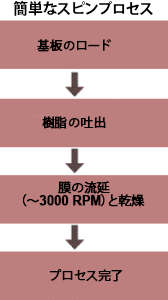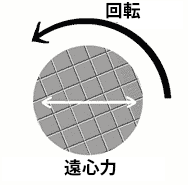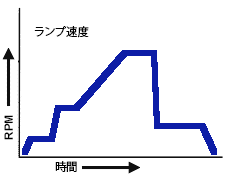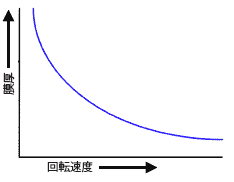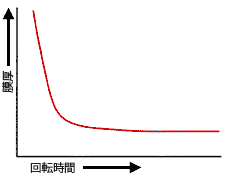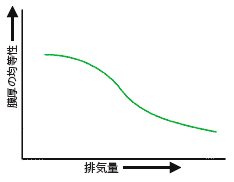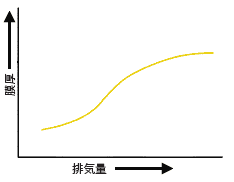
The drying rate of the resin fluid during the spin process is defined by the nature of the fluid itself (volatility of the solvent systems used) as well as by the air surrounding the substrate during the spin process. Just as a damp cloth will dry faster on a breezy dry day than during damp weather, the resin will dry depending on the ambient conditions around it. It is well known that such factors as air temperature and humidity play a large role in determining coated film properties. It is also very important that the airflow and associated turbulence above the substrate itself be minimized, or at least held constant, during the spin process.
All Cee® spin coaters employ a “closed bowl” design. While not actually an airtight environment, the exhaust lid allows only minimal exhaust during the spin process. Combined with the bottom exhaust port located beneath the spin chuck, the exhaust lid becomes part of a system to minimize unwanted random turbulence. There are two distinct advantages to this system: slowed drying of the fluid resin and minimized susceptibility to ambient humidity variations.
The slower rate of drying offers the advantage of increased film thickness uniformity across the substrates. The fluid dries out as it moves toward the edge of the substrate during the spin process. This can lead to radial thickness non-uniformities since the fluid viscosity changes with distance from the center of the substrate. By slowing the rate of drying, it is possible for the viscosity to remain more constant across the substrate.

Drying rate and hence final film thickness is also affected by ambient humidity. Variations of only a few percent relative humidity can result in large changes in film thickness. By spinning in a closed bowl the vapors of the solvents in the resin itself are retained in the bowl environment and tend to overshadow the affects of minor humidity variations. At the end of the spin process, when the lid is lifted to remove the substrate, full exhaust is maintained to contain and remove solvent vapors.
Another advantage to this “closed bowl” design is the reduced susceptibility to variations in air flow around the spinning substrate. In a typical clean room, for instance, there is a constant downward flow of air at about 100 feet per minute (30m/min). Various factors affect the local properties of this air flow. Turbulence and eddy currents are common results of this high degree of air flow. Minor changes in the nature of the environment can create drastic alteration in the downward flow of air. By closing the bowl with a smooth lid surface, variations and turbulence caused by the presence of operators and other equipment are eliminated from the spin process.

